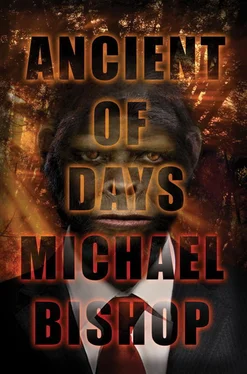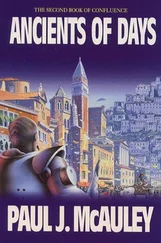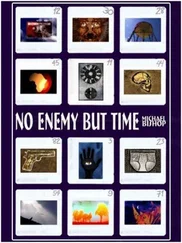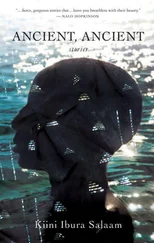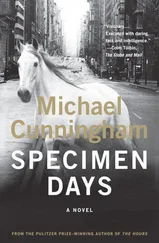Bilker came down from the deck, disengaged Starnes from his camera, and threw it against the nearest tree trunk. Its casing shattered, and the sound of its impact echoed away through the pecan grove. “No sweat,” Starnes said, lifting his hands. “I ain’t gonna get testy with you, man. Ain’t my way.”
I hurried out of the paddock to make sure Adam didn’t kill Barrington. Squatting beside the two wrestling men, I tried to grip Adam by the shoulders and pull him away. But where Adam was one moment, Barrington was the next, and their ever-revolving entanglement stymied my efforts to play peacemaker.
Soon, though, I realized Adam was mauling his enemy with saliva and sudden unpredictable shifts of weight. Barrington would be black and blue for a couple of weeks, but he’d survive this noisy struggle—just as he’d survived the one in December. That he had doubts on this score perfectly suited Adam’s purpose. Finally, Barrington curled in upon himself like a fetus, whimpering, and Adam rolled clear of the man.
“Can’t say that I blame you,” I told Adam, above his victim’s caterwauling, “but you’ve used this poor jerk for a scapegoat. You know that, don’t you?”
“I am not a God-damnable saint,” Adam growled. “I am only human.”
He got up and strode toward the house, his swarthy buttocks moving in elegant synchrony, the muscles in his back agleam. “ I am only human .” This admission rang in my ears with the unmistakable tenor of bitterness and regret. “I am only human.” An odd feeling came over me. It pained him that he was one of us.
I found myself patting Brad Barrington’s shoulder. “It’s okay, fella. Listen, it’s okay.” But I really had no idea what I was saying.
On Thursday morning, Adam, Caroline, and I attended Nancy Teavers’s funeral at the First Baptist Church in Beulah Fork. It was not as well attended as the fiasco at Paradise Farm, but the pastor eulogized Nancy in a way that actually enabled me to call up her face—not the wan, black-eyed visage of the murder victim in the orangutan costume, but the lively, often mystified features of the young woman who had worked for me at the West Bank. The organ played, and people cried. I wasn’t one of them, though. It was hot, and I was numb.
Craig and Tiny Paul were decently buried. During the relative cool of twilight, long after the inconclusive rites of Wednesday afternoon, we had laid them to rest. Bilker and five members of our security force had played pallbearer for the casket, while Adam had marched behind them with the burial urn in his arms. Both the casket and the urn had gone into the ground in a lovely section of the pecan grove bordering Ruben Decker’s farm. Nancy, of course, was buried next to E. L.’s grave in the cemetery near the school, and it finally seemed that we had all reached a place in our lives where, radically transfigured, we could begin again.
RuthClaire was still in North Carolina and would stay there through the weekend. She and Adam had talked last night on the telephone, but what they had said to each other—how they’d resolved or failed to resolve their quarrel over the double funeral—only they knew. RuthClaire had not asked to speak to Caroline, and Adam was saying nothing about the present state of their relationship. Still, his silence and his listlessness suggested a debilitating melancholy.
Back from Nancy’s funeral, Adam asked me to drive him to the abandoned brick kilns where the young woman’s husband had died. “Why?” I asked him.
“I wish to meditate. And to fast.”
Caroline said, “Couldn’t you do that here?”
“It requires, I think, solitude. And a chance to feel the earth enfolding me as it enfolds my son.”
“But the brick kilns ?”
Adam insisted. We could not argue him out of his desire to visit that forbidding place. Finally, Caroline and I drove him there by a county-maintained road. While we sat in the car, he walked along the lips of the crumbling vats. Blackberry vines and poke weed filigreed the red-clay mounds into which these shafts descended, and mockingbirds warbled dark songs. At one opening, Adam knelt and peered downward. Then he eased a leg over and lowered himself into the vat.
I shouted his name.
“Come back for me Sunday morning,” he called. “Until then, never worry.”
“Sunday morning?”
“It is fine, Mister Paul. It is what I need. Water aplenty down there, and in three days no habiline has ever hungered to death.”
“Caroline, tell him to come back to his senses.”
“There’s nothing I can do. He’s made up his mind.”
And so he went down, stayed in the depths of those bottomless kilns until Sunday morning, and greeted us then with a song that spiraled up like a chant through the frozen prayer of a cathedral. Then he emerged into the sunlight physically weaker but spiritually fortified. That afternoon, Caroline drove him back to Atlanta, where he was reunited with RuthClaire on Hurt Street.
And I?
From my position as restaurant owner, gentleman farmer, bachelor, and pagan, I contemplated these matters and decided it was time for me to become… something else, something new, something other.
PART THREE:
Heritor’s Home
Montaraz Island, Haiti
On the first anniversary of Tiny Paul’s birth, Caroline and I were married in Glenn Memorial United Methodist Church on the Emory University campus. Over the autumn, I had prepared for this event by divesting myself of both Paradise Farm and the West Bank. My house and grounds (excluding only the burial plot near Ruben Decker’s place) I sold to a pecan-growing cooperative based in Americus, Georgia.
The restaurant, of course, went to Livia George. With a lawyer’s help, I arranged to receive a small percentage of her monthly profit for the next ten years, but conveyed full title to her and dissociated myself from the West Bank’s operation. If Livia George contracted any debts, a possibility that her experience and managerial skills greatly minimized, I had no responsibility for them. I wanted only to be free of Beulah Fork, its people, and my past there.
RuthClaire and Adam did not attend the wedding. In September, they had moved out of their house on Hurt Street to begin a month-long tour of England and mainland Europe. From October through December, they lived on a Greek island in the Aegean Sea. Both were working, but no specimen of their art or word of its character got back to the States. By the middle of January, they had returned to the Western Hemisphere, as a postcard from Mexico City attested. By late February, as another hasty card told us, they were living in a stucco beach cottage near Rutherford’s Port on the island of Montaraz, Adam’s birthplace. Neither Caroline nor I knew what to make of this last development, which took us wholly by surprise.
For a while, I had toyed with the idea of opening a restaurant in Atlanta. I dropped it not only because the city has eating places the way the Sahara has sand, but also because I was tired of the restrictive lifestyle. I had kept the West Bank going for nearly ten years, and the thought of resurrecting that routine for another decade turned my brains to tepid Creole gumbo. So, with David Blau’s consent and encouragement, I approached several of the artists at Abraxas to offer my services as business manager and artist’s representative. Six of these young people accepted, and I recruited other clients from Atlanta’s talented art students and independent craftspeople. By building rapport with art dealers, gallery directors, museum curators, and department-store buyers (ordinarily, a casual reference to my past association with RuthClaire turned doubtful frowns to expectant smiles), I was soon earning money for my clients. Although I had a small office near Emory Village, I liked my new work primarily because I was not shackled to a desk.
Читать дальше
